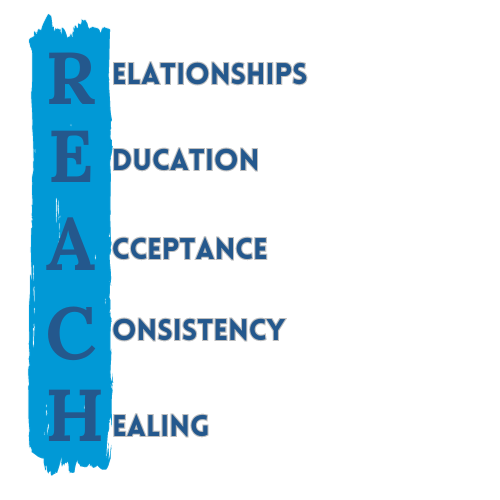Our Children's Homestead (OCH) has been leading in therapeutic foster care since 1995!
OCH contracts with the Department of Children and Family Services (DCFS) to provide therapeutic foster care and adoption services to youth who have experienced complex and severe trauma. DCFS contracts these cases to us because we have a team that is specifically trained to meet the special needs of these specialized cases. We provide our youth an opportunity to grow up in a nurturing home environment with a family, rather than an institutionalized setting.
OCH serves youth of all ages however, the majority are between the ages of 12 and 21. They have been removed from their homes due to severe abuse, neglect or dependency. They struggle with a combination of medical, developmental, mental health and behavioral issues that require intensive services and a steadfast commitment to helping and healing. Unfortunately, many of our youth have grown up bouncing around the foster care system and we aim to be their last stop to achieve permanency.
Each youth receive a TEAM of support:
-Caseworker
-Therapist
-Mentor
-Educational Liaison
-Foster Parent/s
-Community Providers
Our children are placed into homes with foster parents who are trained and committed to providing specialized care. The child is assigned a case worker who provides case management specially designed for each child’s individual needs; the case worker meets regularly with the child and family to coordinate all of the child’s therapies and programs and to assess progress. The child is teamed with a licensed therapist who works with the child and foster parents to engage the child in programs like a therapeutic mentor program to overcome behavioral and socialization issues.
At OCH, we have realistic expectations for our children, and we help them reach each goal and recognize every success. Every child needs training, education, patience and encouragement. Our foster parents, case workers and therapists work closely to support their child’s needs and enable them to succeed.
Our hope is to return OCH children to their biological families. If reunion with parents is not possible, we strive to find a family member who can provide a home while the child remains a part of a foster family. Whatever the case, we strive to keep siblings together in foster care or commit to provide regular visitation with siblings who are not living together.
OCH serves youth of all ages however, the majority are between the ages of 12 and 21. They have been removed from their homes due to severe abuse, neglect or dependency. They struggle with a combination of medical, developmental, mental health and behavioral issues that require intensive services and a steadfast commitment to helping and healing. Unfortunately, many of our youth have grown up bouncing around the foster care system and we aim to be their last stop to achieve permanency.
Each youth receive a TEAM of support:
-Caseworker
-Therapist
-Mentor
-Educational Liaison
-Foster Parent/s
-Community Providers
Our children are placed into homes with foster parents who are trained and committed to providing specialized care. The child is assigned a case worker who provides case management specially designed for each child’s individual needs; the case worker meets regularly with the child and family to coordinate all of the child’s therapies and programs and to assess progress. The child is teamed with a licensed therapist who works with the child and foster parents to engage the child in programs like a therapeutic mentor program to overcome behavioral and socialization issues.
At OCH, we have realistic expectations for our children, and we help them reach each goal and recognize every success. Every child needs training, education, patience and encouragement. Our foster parents, case workers and therapists work closely to support their child’s needs and enable them to succeed.
Our hope is to return OCH children to their biological families. If reunion with parents is not possible, we strive to find a family member who can provide a home while the child remains a part of a foster family. Whatever the case, we strive to keep siblings together in foster care or commit to provide regular visitation with siblings who are not living together.
Options for Permanency:
Return Home:
- Children return to the care of their birth parents after the family has successfully completed services and addressed the issues which brought them to the attention of DCFS. OCH may stay involved to support the families and ensure that children are protected and nurtured. The birth parents resume all parental responsibilities.
- Since 1995, Our Children’s Homestead has accomplished well over 100 adoptions of children into loving foster care families. Adoption may be by the foster parents, kin, or a new family. Adoption transfers custody from DCFS to the adoptive parents and transfers all parental rights permanently to the new parents. The birth parents’ rights are terminated. The adoptive parents are financially and legally responsible for the children, although adoption subsidies may be available. Children have the same status as if they were born into the family.
- Guardianship transfers custody from DCFS to the guardians and transfers most parental rights and responsibilities to the guardians. Foster parents, kin, or a new family may assume guardianship. Birth parents’ rights do not need to be terminated by guardianship. The guardians are financially and legally responsible for the children, but subsidies are available. The birth parents or others can contest guardianships, and the guardians can ask for revocation of the guardianship.
- Independence is a goal chosen for youths who will remain in the custody of DCFS until emancipation. OCH is responsible to develop plans to prepare these young people to learn skills necessary to function independently as adults.

